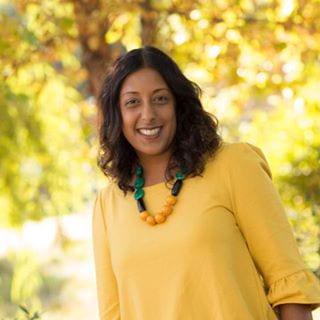 By Myra Quadros-Meis, Ed.D (Administrator in San Francisco Unified University District)
By Myra Quadros-Meis, Ed.D (Administrator in San Francisco Unified University District)
School management can be lonely and isolating. Your colleagues are other directors who are also hectic so you do not want to load them with your inquiries or fears. Typically, leadership conferences are total of logistics with little time to network significantly a lot less be in collaboration with friends.
At the starting of the 2018-19 university yr, the superintendent of San Francisco Unified Faculty District (SFUSD) discovered twenty educational institutions that historically or persistently underserved Black college students as indicated on proficiency metrics of standardized checks (California University Dashboard, 2018). The district labeled the educational facilities and activated a course of action for addressing the identified deficiencies via a mandate.
About the class of two many years, I labored facet-by-aspect with four middle school leaders from the SFUSD as activist co-researchers. With the objective of addressing the district mandate and aiding these leaders in enhancing academic and social-emotional results for Black students, we engaged in an imaginative, collaborative PAR venture concentrated on social justice change (hunter et al., 2013). Our imaginations have been activated as we engaged in personal narratives. We shared stories about our journey traces to leadership and opened up about our vulnerabilities in leading universities. Three cycles of inquiry in excess of eighteen months afforded us time to determine how an fairness-centered experienced understanding neighborhood (EC-PLC) could absolutely engage in creative dialogue to deal with the substantial worries that College students of Coloration confronted in the four center faculties.
Our imaginations were being activated as we engaged in own narratives.
Ahead of we started our to start with cycle of inquiry we expended informal time together that I refer to as a pre-cycle. This pre-cycle is what grounded us as a community that eventually pushed us in direction of transformative social justice leadership (Shields, 2010). The school leaders appreciated the treatment taken to set up and preserve our expert discovering area and coaching partnership. In my investigate I phone this topic, “Pedagogy of Treatment.” I believe the principles from Pedagogy of Care presented an atmosphere exactly where the faculty leaders could start off to be their reliable selves and engage in imaginative top the ability to lead exterior of the regular methods of schooling. They became open to currently being in solidarity with underrepresented pupil and relatives teams.

Features of Pedagogy of Treatment
- Methods are usually restricted in the schooling environment, particularly for leadership skilled improvement. In the examine, two resources contributed to the pedagogy of treatment in our function with each other: time and food stuff. A school leader’s time is 1 of the most important assets, and there is in no way enough of it (Theoharis, 2009). Their determination was obvious by how they made time in their schedules to attend experienced finding out collectively. As active university leaders, they prioritized the administrative community and communicated how a lot they valued the time to be with colleagues grappling with related troubles. Taking in alongside one another was an critical ritual, a time to break barriers throughout differences and reduce the formality of the expert connection. Starting with our first assembly, both equally snacks throughout EC-PLC time and sharing a communal supper afterward were being the norm.
- The bodily surroundings to engage in the EC-PLC function was a priority for the group. Initially, we fulfilled at the conclude of the faculty working day so there would be limited interruptions. In the to start with cycle, we met both at a faculty web page and at my dwelling. The university leaders requested to satisfy in a location diverse from a college internet site mid-cycle, so we made the decision to permanently transform the assembly spot to my house. Changing the location delivered an sudden degree of consolation and protection in which reliable, partaking discussions could exist via storytelling and connection. The change in room gave us the potential to develop our imaginations outside of what the walls of classic school allows.
- An important aspect of my do the job with the university leaders was to discover their faculty context in buy to help them in the district mandate and their management improvement. In what I termed, inclusive pedagogy, our coaching time offered priceless options for me to establish belief with just about every leader and with other users of the college group, to aid me realize the context of their university conditions, and to replicate with them on their management decisions. The have faith in that made affirmed a caring relationship and supported their consolation in partaking their creativeness and inviting other individuals to imagine with them.
- As portion of the culture of caring that I was striving to cultivate with the school leaders, I continually furnished wellness checks. I would routinely cease by their offices unscheduled to say hello and see how they had been performing. A lot of of the relaxed discussions led to a lot more in-depth conversations exactly where university leaders exchanged individual stories and inner thoughts, such as anxieties. I assisted every leader, as needed, on these jobs as guiding their reaction to a district office environment, building an agenda, supporting classroom walkthroughs, or attending a conference with them.

Imaginative leaders do not perform in silos. They have to have a community of like-minded colleagues and need to working experience a pedagogy of treatment in order to shift away from transactional management to much more social justice transformative management. Time, house, protection, and have confidence in permit us to join, have interaction our imaginations, and share our stories in techniques that cultivate a courageous place for us to be susceptible and additional self-confident to acquire hazards in our conclusion producing (Arao & Clemens, 2013)
References
Arao, B., & Clemens, K. (2013). From risk-free spaces to brave areas: A new way to frame dialogue all around diversity and social justice. In L. Landreman (Ed.), The artwork of productive facilitation: Reflections from social justice educators (pp. 135-150). Stylus Publishing.
California School Dashboard. (2018). SFUSD [Academic performance and academic engagement] https://www.caschooldashboard.org/experiences/38684780000000/2018
hunter, L., Emerald, E., & Martin, G. (2013). Participatory activist investigate in the globalized environment. Springer.
Shields, C. M. (2010). Transformative management: Operating for fairness in varied
contexts. Academic Administration Quarterly, 46(4), 558-589.
Theoharis, G. (2009). The university leaders our little ones ought to have: 7 keys to equity, social justice, and faculty reform. Teachers Faculty Press.





More Stories
Creating a New Status Quo
What To Do if Your Application Is Declined
Toyota Land Cruiser May Return to America